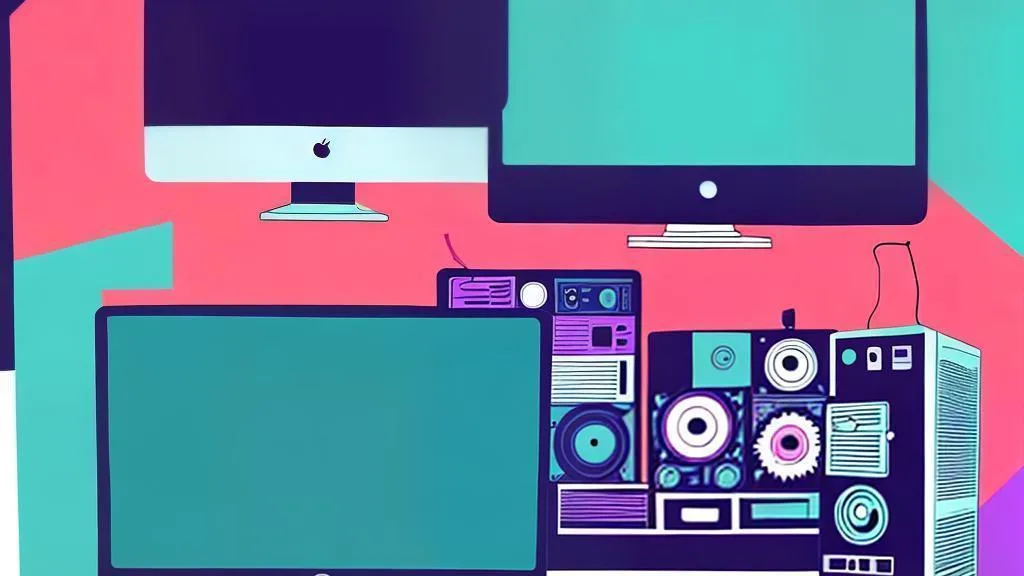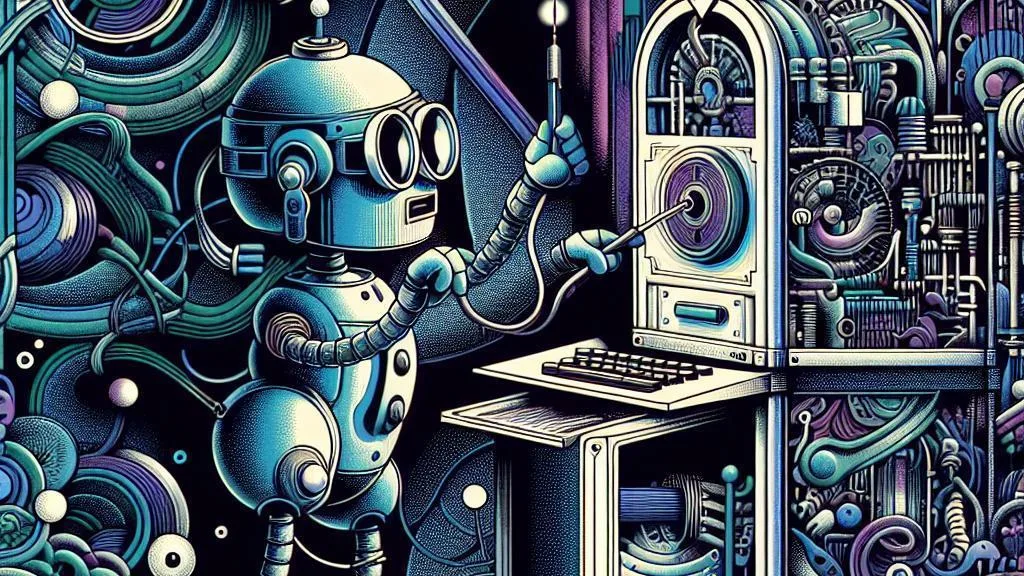How Do AI Content Detectors Work?
Wakey, wakey, folks! It’s time to put on our techno-savvy hats and dive deep into …

The rapid emergence of artificial intelligence (AI) tools like ChatGPT is transforming content marketing. A 2022 study by Statista found that 73% of US marketers now use some form of AI to generate marketing content. This seismic shift is raising major questions around the future role of human creators.
Will AI eventually replace human writers altogether? How can marketers harness AI without compromising quality? What are the risks and rewards of integrating these powerful new technologies? This article provides a comprehensive analysis of AI's impact on content marketing, along with detailed recommendations for balancing automated and human creativity moving forward.
Generative AI refers to AI systems capable of producing original text, images, audio or video with little to no human input. The most well-known example is ChatGPT, the viral chatbot from OpenAI that can generate human-like text on virtually any topic in seconds.
But ChatGPT is just the tip of the iceberg. Copy.ai, Jasper, Rytr and other AI writing tools now allow marketers to instantly produce long-form blog posts, social media captions, emails, ad copy and more. On the visual side, tools like DALL-E 2 and Midjourney can generate unique images and art.
This new generation of AI is immensely appealing for busy marketing teams. Tech analyst firm Gartner predicts that by 2025, AI will be creating 50% of all marketing content that is "information rich." The reasons are obvious — AI can research topics, ideate content and write full drafts far faster than any human.
Early adopters are already sold on the benefits. "We use AI tools to come up with numerous headlines and social posts, then our team refines and selects the best ones," said Sara Menke, Head of Content at later.com. "It's sped up our content process tremendously."
But amidst the hype, AI is also stoking existential fears. Will these tools eventually become so advanced that human writers are no longer needed? Could AI-generated content dominate the internet, squeezing out human creativity?
Many experts say those sci-fi scenarios are still a long way off. "AI cannot fully replace the nuanced decision making and creative thinking of human writers," said Krishna Kanth, VP of Growth Marketing at Zenefits.
Kanth explained that while today's AI excels at mimicking human writing styles, the underlying technology still has major blindspots:
- Lack of common sense - AI tools often make absurd logical leaps not grounded in reality. Without human oversight, factual errors are common.
- Inability to build trust - AI lacks human warmth and emotional intelligence. Copy can come across as stilted and robotic.
- Risk of bias - Training data biases get amplified. AI has been shown to generate racist, sexist and unethical content.
- Weak storytelling skills - AI struggles to go beyond basic templates to craft truly compelling narratives and metaphors.
Experts like Kanth believe these limitations mean quality content still requires human creativity, strategic thinking and emotional intelligence. AI is a tool to augment writers, not replace them.
Despite AI's current limitations, many companies are racing to automate content production. The appeal of an "AI content factory" churning out articles at scale is obvious. But Thought leader Robert Rose, CEO of The Content Advisory, warns this hands-off approach is incredibly risky.
"Smart marketers know human-generated content has premium value," said Rose. "Outsourcing all content to AI machines is playing with fire."
Specifically, Rose cautions against letting AI create content with zero human oversight, because:
- The copy will lack personality and emotional connection. Audiences can sense content not created for them.
- Factual inaccuracies and "hallucinated" data will erode trust. AI often invents stats and sources.
- Generic, templated content gets poor search rankings. Google algorithms favor original information tailored to users.
- Reputation damage due to mistakes at scale. Subtle AI errors multiply across thousands of pieces of content.
- PR crises if AI generates unethical, biased or explicit content, a known issue.
"The siren song of an AI content assembly line is seductive but treacherous," concludes Rose. "It will only accelerate the race to the bottom for quality."
Rather than choose between 100% human-created or AI-generated content, the solution lies in combining the unique strengths of both. When integrated properly, AI enhances — rather than replaces — human creativity and expertise.
"We need to stop framing this as a competition between AI and humans," said Ajay Gupta, VP of Marketing at Bread Financial. "Together they are greater than the sum of their parts. Lean into that symbiosis."
Here are best practices Gupta and other experts recommend to optimize the AI-human workflow:
1. Let AI generate content ideas, headlines and outlines. Then have humans develop them into compelling stories.
2. Use AI to research facts, data points and sources rapidly. But always manually verify accuracy.
3. Have AI write rough first drafts of simple content like social posts, emails, etc. Humans refine and finalize.
4. Continuously monitor AI content for factual errors, logical gaps, biases and other issues.
5. Have subject matter experts review AI-generated technical copy to catch subtle inaccuracies.
6. Allow AI to handle repetitive administrative marketing tasks so writers can focus on high-value strategic projects.
7. Feed AI with your organization's unique data, brand voice and past content to improve its relevancy.
"AI excels at confidently writing incorrect or biased information," warns data scientist Christopher Penn. "Vigilant human oversight of AI is crucial to avoid undermining credibility."
The Outlook for Content Marketers
Today's generative AI tools are still in their infancy. Rapid advances in underlying technology will likely continue to reshape content creation in coming years.
But for now, the winning formula is clear. Embrace AI's efficiency gains, but don't become over-reliant. Elevate human creativity, strategy and emotional intelligence. And focus on integrating AI seamlessly into your team's workflows rather than viewing it as a replacement.
"By combining AI's speed with human oversight and imagination, marketers can create better content, faster," said Penn. "That's the ultimate goal - augmented intelligence, not artificial intelligence."
So although AI represents some risk, conscientious implementation also creates huge opportunities to engage audiences in new ways. Maintain that human balance, and content marketing can thrive in the age of thinking machines.
Some other posts you may like

How Do AI Content Detectors Work?
Wakey, wakey, folks! It’s time to put on our techno-savvy hats and dive deep into …
August 27, 2023
Read More
How does AI content assistance impact SEO and content marketing?
AI-powered tools are revolutionising the way marketers approach SEO and content marketing. With the …
August 27, 2023
Read More